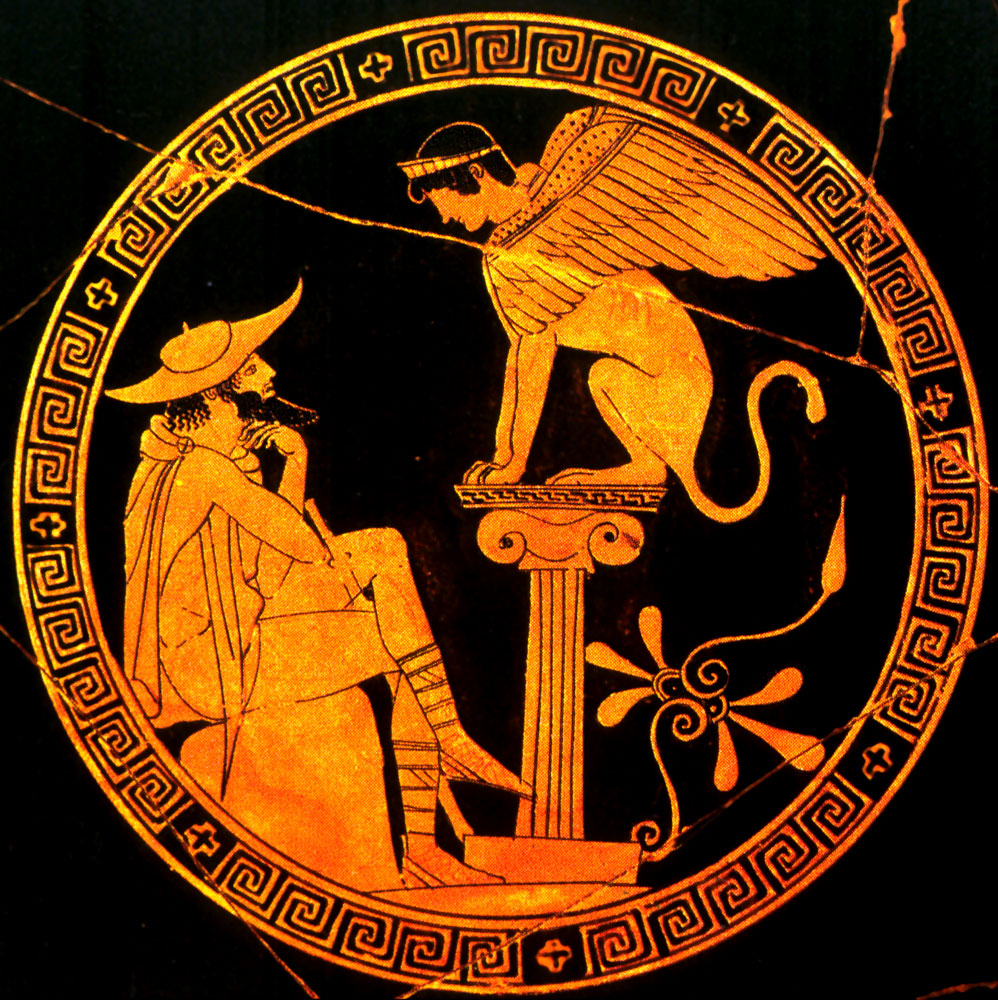Mythologies Online Assignments
Assignment for January 31
Read Oedipus Rex & answer the questions below. Questions will be graded on the basis of the quality of the responses. Responses should be sent to my email address at mcole@wiu.edu by 5:30 p.m. on Friday, January 28.
Notes
Here is the riddle of the Sphinx: "There exists on land a thing with two feet and four feet, with a single voice, and that has three feet as well. It changes shape, alone among the things that move on land or in the air or down through the sea. Yet during the periods when it walks supported by the largest number of feet, then is the speed of its limbs the feeblest of all." The answer to the riddle is "man."
Oedipus' family, the family of Kadmos, has a long, complex, and dark mythological history; and it is significant that Kadmos invented the alphabet. Notice the power of words throughout the play: Oedipus solves a riddle, the oracle's words are irrefutable, and curses hold more power than people today would likely attribute to them.
Questions:
1. Do you find Oedipus likable? Does he have any good qualities?
4. How would we square Oedipus' story with the Delphic Oracle's (the Oracle of Apollo's) famous dictum, "know thyself"?
5. Tiresias tells Oedipus that the king's skill at "solving riddles" "brought about . . . his ruin." Should we then extrapolate and say that the moral is something like, "humans should not take pride in their cleverness, but instead trust in the inscrutable gods"? Or is this insufficient?
6. If the play has an ethical message, what would it be? What lesson about interpretation might it teach?
7. Explain which character do you find more admirable, Tiresias with his "why try?" point of view and his efforts to spare people's feelings, or Oedipus with his "truth at any cost" point of view.
9. What does Oedipus means when he calls what he's done "[m]ore primal than sin itself"?
10. What and how does blindness signify in the play?
11. Could we read the play as a critique of patriarchy? If so, how so? If not, why not?
Assignment for February 7 (first class)
Read Oedipus at Colonus, Antigone, and a selection from Sigmund Freud's The Interpretation of Dreams (print from this website).
Notes
While Sigmund Freud places greatest emphasis on Oedipus Rex, and while the Greek Philosopher, Aristotle, considers it the ultimate literary work, Freud's most prominent psychoanalytic follower, Jacques Lacan, favors Antigone, as does the German philosopher, Hegel. Which of the three plays is your favorite (answer in class)?
Though Antigone comes last in the cycle, it was composed first.
